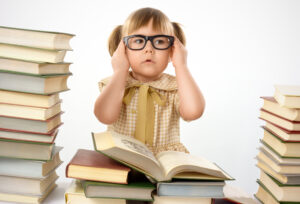What Is An Adjective?
Adjectives including adjectives starting with a l provide details about people, places, and things. We use adjectives to alter nouns and pronouns. For example, we can make a noun like duck more specific by introducing it with an adjective like tiny or quiet. While adjectives can make your writing more descriptive, it is crucial not to overuse them.
What is an adjective? In the most simple terms, an adjective is a word used to describe a noun. These words can add a more descriptive flavor to a sentence. For example, you might say something along the line of the following in order to describe a tree, “It is a tree.” If you were to add an adjective into the sentence, you would give a clearer picture of what you were trying to describe, by saying something such as “It is a large tree.” or “It is a large, leafy tree.” The words in bold are the adjectives and allow the listener to get a better understanding of the object being talked about.
How Important Are Adjectives?

An adjective can denote the color, size, condition, sense, quantity, appearance, time, or personality of a noun or pronoun. Also, adjectives are capable of expressing comparisons by degrees. The list of adjectives starting with a l can be found here: https://argoprep.com/blog/adjectives-starting-with-i-760-words-to-boost-your-vocabulary/.
However, adjectives do not simply have to describe an object, they can also be used in order to describe something that is not tangible. A good example of this is the use of adjectives to talk about someone’s personality. You might say something along the lines of ” My father is an intelligent man.”
Adjectives are a great way to appeal to the senses by describing visual aspects, taste, smell, sound, and emotional or non physical attributes.
In short, adjective is a part of speech which is common that people use it almost automatically, both in speech and in writing.
- Can adjectives be used without nouns?
Yes, adjectives can be used without nouns. Mind the definite article the:
the rich = rich people
Here is an example from the fairy tale Cinderella:
“The good must be put in the dish, the bad you may eat if you wish.”
Here is another example with nationalities in the plural:
The Scottish live in the North of the United Kingdom.
- Can two or more adjectives be used together?
Yes, if you use more adjectives you can put them in front of the noun:

a fat old cat
or you can put them after the verb (e.g. to be). In this case and is placed between the last two adjectives.
It was cold, wet and windy.
- Adjectives, ending in -ing and -ed
There are adjectives ending in -ing and -ed. These are participle constructions, used like adjectives. Here are some examples:
- A) Here the adjective is put before the noun:
Yesterday I read an amusing story in a magazine.
Doris has a boring job.
We watched the group of excited people.
- B) Here the adjective is put after the verb:
I was not at all amused by the discussion.
Children get bored very quickly.
The end of the film was really exciting for me.
